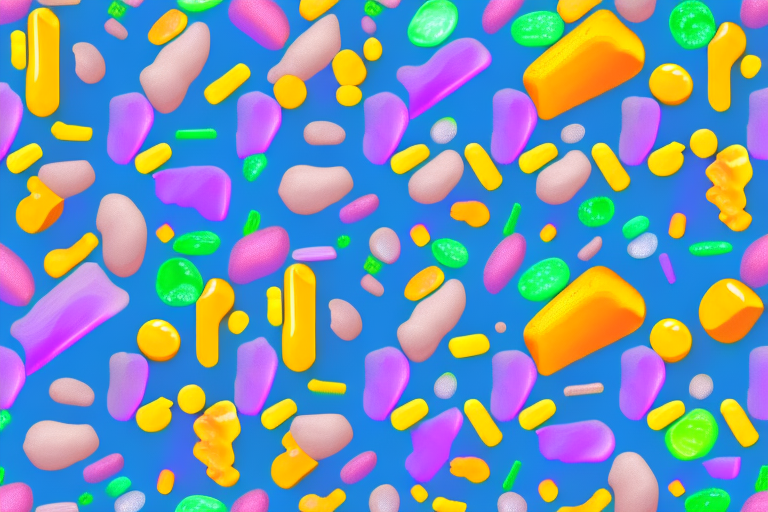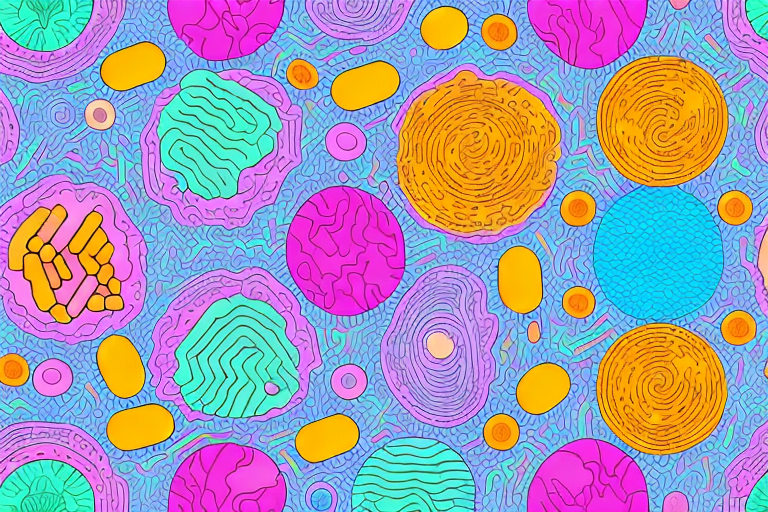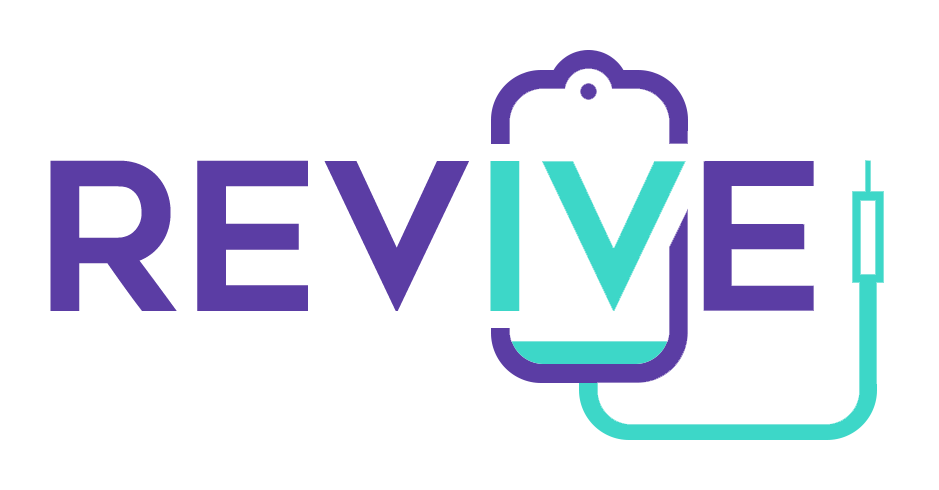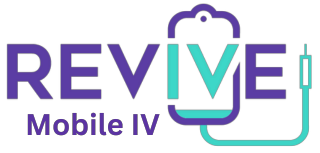Top Vitamins for ADHD: What You Need to Know

Attention-deficit/hyperactivity disorder, commonly known as ADHD, affects millions of children and adults worldwide. While traditional treatment methods such as medications and behavioral therapies can be helpful, many individuals with ADHD are searching for natural ways to manage their symptoms. One promising approach is through proper nutrition, specifically by ensuring that the body is receiving adequate amounts of essential vitamins and nutrients. In this article, we will explore the top vitamins for ADHD management and how they can support brain function and overall well-being.
Understanding ADHD and Its Impact
Before we delve into the benefits of vitamins and nutrients for ADHD, it is important to first understand the condition itself and how it can impact an individual’s life. ADHD is a neurodevelopmental disorder that affects an individual’s ability to focus, control impulses, and regulate behavior. It is often diagnosed during childhood, but can also persist into adulthood. ADHD can result in challenges with academic and work performance, social relationships, and daily functioning.
Individuals with ADHD may find it difficult to complete tasks, stay organized, and manage time effectively. They may also struggle with maintaining attention during conversations or activities, and may frequently interrupt or talk excessively. These challenges can lead to difficulties in school or work, as well as strained relationships with friends and family.
What is ADHD?
ADHD is characterized by three main symptoms: inattention, hyperactivity, and impulsivity. Those with inattentive symptoms may struggle with paying attention to details or following through on tasks. Those with hyperactive symptoms may exhibit excessive movement or restlessness, while those with impulsivity symptoms may act without thinking through the consequences.
It is important to note that not all individuals with ADHD exhibit all three symptoms. Some may only experience inattention, while others may primarily struggle with impulsivity. Additionally, the severity of symptoms can vary from person to person.
Symptoms and Diagnosis of ADHD
In order to receive a diagnosis of ADHD, an individual must exhibit several symptoms of inattention, hyperactivity, or impulsivity that have persisted for at least six months and interfere with daily functioning. A healthcare professional, such as a pediatrician or psychiatrist, can conduct a thorough evaluation and provide a diagnosis.
It is important to note that other conditions, such as anxiety or depression, can also present with symptoms similar to ADHD. Therefore, a comprehensive evaluation is necessary to accurately diagnose and treat individuals with ADHD.
The Role of Nutrition in ADHD Management
While there is no one specific cause of ADHD, research suggests that both genetics and environmental factors may play a role. One area that has garnered attention in recent years is the role of nutrition in ADHD management. Nutritional deficiencies in vitamins and minerals, such as iron, zinc, and magnesium, have been linked to symptoms of ADHD. Additionally, a balanced diet that includes vitamins and nutrients that support brain function can positively impact ADHD symptoms.
For example, omega-3 fatty acids, found in fatty fish such as salmon, have been shown to improve attention and reduce hyperactivity in individuals with ADHD. Similarly, iron and zinc deficiencies have been linked to increased impulsivity and inattention, respectively.
It is important to note that while nutrition can play a role in managing ADHD symptoms, it is not a substitute for medication or other treatments. A comprehensive treatment plan, which may include medication, therapy, and lifestyle modifications, is often necessary to effectively manage ADHD.

The Importance of Vitamins for ADHD
Among the essential nutrients for ADHD,
vitamins are particularly important. Vitamins are organic compounds that the body needs in order to function properly. They are necessary for many bodily processes, including proper brain function. Vitamins support the brain function in many ways, some of which are discussed below.
How Vitamins Support Brain Function
- Vitamin B6 (Pyridoxine): Necessary for the production of neurotransmitters (chemicals in the brain that transmit signals) such as serotonin, dopamine, and norepinephrine. These neurotransmitters are involved in regulating mood, attention, and behavior, all of which can be affected in individuals with ADHD.
- Vitamin B9 (Folate): Plays a role in DNA synthesis and repair, and is necessary for proper neurotransmitter function. Folate deficiency has been linked to depression and other mood disorders, which are common co-occurring conditions in individuals with ADHD.
- Vitamin B12 (Cobalamin): Crucial for the development and maintenance of the central nervous system, and also assists with the production of neurotransmitters. Low levels of vitamin B12 have been associated with cognitive impairment and memory problems, which can contribute to ADHD symptoms.
- Vitamin D: Plays a role in brain development and function, and deficiency has been linked to depression and mood disorders. Vitamin D deficiency is common in individuals with ADHD, and supplementation has been shown to improve symptoms in some cases.
- Vitamin C (Ascorbic Acid): Plays a role in the production of neurotransmitters, and has antioxidant properties that protect the brain from damage. Antioxidants are important for individuals with ADHD, as oxidative stress and inflammation can contribute to symptoms.
- Vitamin E (Tocopherol): Has antioxidant properties that protect the brain from oxidative stress and inflammation, which can contribute to ADHD symptoms. Low levels of vitamin E have been associated with cognitive decline and memory problems, which are common in individuals with ADHD.
Addressing Nutrient Deficiencies in ADHD
Addressing deficiencies in these vitamins and other nutrients can be an important step in managing ADHD symptoms. For example, a study published in the Journal of Child Neurology found that children with ADHD had lower levels of vitamin B6 and magnesium in their blood, suggesting that addressing deficiencies in these nutrients could be beneficial. In addition to vitamins, other nutrients that may be important for individuals with ADHD include omega-3 fatty acids, iron, and zinc. It is important to work with a healthcare provider to determine if nutrient deficiencies are contributing to ADHD symptoms, and to develop a plan to address any deficiencies that are identified.
In conclusion, vitamins play a crucial role in supporting brain function and addressing deficiencies in these nutrients can be an important step in managing ADHD symptoms. It is important to work with a healthcare provider to determine if nutrient deficiencies are contributing to ADHD symptoms and to develop a plan to address any deficiencies that are identified.
It's important to note that while vitamins can be beneficial for managing ADHD symptoms, they should never be used as a replacement for prescribed medication or therapy. However, incorporating these vitamins into a well-rounded diet can be a helpful addition to an overall treatment plan. In addition to these vitamins, there are also certain foods that have been shown to be beneficial for those with ADHD. Foods that are high in protein, such as lean meats, eggs, and nuts, can help improve focus and attention. Omega-3 fatty acids, found in fatty fish such as salmon and tuna, have also been shown to improve cognitive function and reduce symptoms of ADHD. It's also important to maintain a balanced and healthy diet overall, as well as getting regular exercise and enough sleep. These lifestyle factors can all play a role in managing ADHD symptoms and improving overall well-being. In addition to dietary changes, there are also certain supplements that can be helpful for managing ADHD symptoms. For example, zinc has been shown to improve cognitive function and reduce hyperactivity in children with ADHD. However, it's important to talk to a healthcare provider before starting any new supplements, as they can interact with other medications or have potential side effects. Overall, while there is no one-size-fits-all approach to managing ADHD, incorporating certain vitamins and dietary changes can be a helpful addition to an overall treatment plan. With the guidance of a healthcare provider, those with ADHD can find a personalized approach that works best for them.

Additional Nutrients and Supplements for ADHD
In addition to the vitamins listed above, there are other essential nutrients and supplements that can be beneficial for managing ADHD symptoms:
Omega-3 Fatty Acids
Omega-3 fatty acids are essential fats that the body needs but cannot produce on its own. They play a crucial role in brain function and development, and can help reduce inflammation in the body. Studies have shown that supplementing with omega-3 fatty acids can improve attention and hyperactivity in children with ADHD.
Omega-3 fatty acids are found in fatty fish, such as salmon, mackerel, and sardines, as well as in flaxseed, chia seeds, and walnuts. However, it can be difficult to get enough omega-3s through diet alone, so many people choose to take supplements. Omega-3 supplements are available in both liquid and capsule form, and are widely available at health food stores and online.
Magnesium
Magnesium is a mineral that is necessary for many bodily processes, including proper nerve function. As mentioned earlier, deficiencies in magnesium have been linked to ADHD symptoms. Some research suggests that supplementing with magnesium can help improve attention and reduce hyperactivity in children with ADHD.
Magnesium is found in many foods, including leafy green vegetables, nuts, seeds, and whole grains. However, it can be difficult to get enough magnesium through diet alone, so many people choose to take supplements. Magnesium supplements are available in many forms, including capsules, tablets, and powders.
Zinc
Zinc is another mineral that is necessary for many bodily processes, including immune function and cognitive development. Some studies have found that children with ADHD may have lower levels of zinc in their blood, and that supplementing with zinc can improve symptoms.
Zinc is found in many foods, including oysters, beef, pork, chicken, beans, and nuts. However, it can be difficult to get enough zinc through diet alone, so many people choose to take supplements. Zinc supplements are available in many forms, including capsules, tablets, and lozenges.
Iron
Iron is necessary for the production of hemoglobin, which carries oxygen in the blood. Deficiency in iron can cause anemia, which can result in fatigue and cognitive dysfunction. Some studies have found that children with ADHD may be more likely to have iron deficiency anemia, and that supplementing with iron can improve symptoms.
Iron is found in many foods, including red meat, poultry, fish, beans, and fortified cereals. However, it can be difficult to get enough iron through diet alone, so many people choose to take supplements. Iron supplements are available in many forms, including capsules, tablets, and liquids.
It is important to note that while these nutrients and supplements may be beneficial for managing ADHD symptoms, they should not be used as a replacement for traditional treatments, such as medication and therapy. It is always best to consult with a healthcare professional before starting any new supplement regimen.

Implementing a Balanced Diet for ADHD Management
Attention Deficit Hyperactivity Disorder (ADHD) is a neurodevelopmental disorder that affects both children and adults. It is characterized by symptoms such as hyperactivity, impulsivity, and inattention. While medication can be helpful in managing these symptoms, it is also important to focus on a healthy lifestyle, including a balanced diet. While supplementing with vitamins and nutrients can be helpful, it is important to also focus on obtaining these nutrients through a balanced diet. Here are some tips for creating a nutrient-dense meal plan:
Foods Rich in Essential Vitamins and Nutrients
It is essential to include foods rich in the vitamins and nutrients that can help manage ADHD symptoms. For example, leafy greens such as kale and spinach are good sources of folate, which can help improve cognitive function and reduce symptoms of depression. Nuts and seeds are good sources of vitamin E, which has been shown to improve memory and reduce oxidative stress. Fish such as salmon and tuna are high in omega-3 fatty acids, which can help improve attention and reduce hyperactivity.
Tips for Creating a Nutrient-Dense Meal Plan
- Include a variety of colorful fruits and vegetables in every meal. Not only do they provide essential vitamins and nutrients, but they also contain antioxidants that can help reduce inflammation in the brain.
- Incorporate healthy fats such as avocado or olive oil. These fats can help improve brain function and reduce inflammation.
- Choose lean protein sources such as chicken, fish, or legumes. Protein is an essential nutrient that can help improve focus and reduce hyperactivity.
- Avoid processed and sugary foods. These foods can cause blood sugar spikes and crashes, which can worsen ADHD symptoms.
When to Consider Vitamin Supplements
Vitamin supplements may be necessary for individuals who are not obtaining adequate amounts of essential vitamins and nutrients through their diet alone. However, it is important to speak with a healthcare professional before beginning any supplement regimen. Some supplements can interact with medications or cause adverse effects, so it is important to get professional guidance before starting any new supplement.
In conclusion, a balanced diet that is rich in essential vitamins and nutrients can be helpful in managing ADHD symptoms. By incorporating a variety of colorful fruits and vegetables, healthy fats, and lean protein sources, individuals with ADHD can improve their brain function and reduce symptoms of hyperactivity, impulsivity, and inattention. While supplements may be necessary for some individuals, it is important to get professional guidance before starting any new supplement regimen.
Consult with a Healthcare Professional
It is important to consult with a healthcare professional, such as a registered dietitian or pediatrician, in order to assess individual nutrient needs and ensure that supplements are safe and effective. Additionally, it is important to monitor progress and adjust interventions as needed.
Assessing Individual Nutrient Needs
A healthcare professional can conduct blood tests to determine if an individual has deficiencies in specific vitamins or minerals. This can be particularly important for individuals with ADHD, as certain nutrient deficiencies have been linked to symptoms of inattention and hyperactivity. For example, studies have shown that low levels of iron and magnesium can contribute to ADHD symptoms in children and adults.
In addition to blood tests, healthcare professionals can also provide guidance on how to obtain these nutrients through a balanced diet. For example, foods high in iron include red meat, poultry, fish, beans, and fortified cereals. Foods high in magnesium include nuts, seeds, whole grains, and leafy green vegetables.
Monitoring Progress and Adjusting Interventions
It is important to monitor progress over time and adjust interventions as needed. For example, if supplementing with vitamin B6 does not seem to be improving symptoms, a healthcare professional may recommend trying a different approach. This could include increasing the dosage, trying a different type of supplement, or focusing on obtaining the nutrient through diet instead.
Healthcare professionals can also provide guidance on other lifestyle factors that may impact ADHD symptoms, such as sleep, exercise, and stress management. For example, studies have shown that regular exercise can improve attention and reduce hyperactivity in children with ADHD.
Potential Interactions with ADHD Medications
It is also important to be aware of potential interactions between supplements and medications used to manage ADHD. For example, some supplements may interact with stimulant medications, which can affect their effectiveness. Healthcare professionals can provide guidance on which supplements are safe to take alongside ADHD medications, and which should be avoided.
In addition to supplements, healthcare professionals can also provide guidance on other medications and therapies that may be effective for managing ADHD symptoms. For example, behavioral therapy has been shown to be effective for reducing symptoms of inattention and hyperactivity in children and adults with ADHD.
Overall, consulting with a healthcare professional is an important step in managing ADHD symptoms and ensuring that supplements and other interventions are safe and effective. By working with a healthcare professional, individuals with ADHD can develop a comprehensive treatment plan that addresses their unique needs and goals.
Conclusion: Supporting ADHD Management with Proper Nutrition
While there is no one-size-fits-all approach to managing ADHD, proper nutrition can be a promising complement to traditional treatment methods. By ensuring that the body is receiving adequate amounts of essential vitamins and nutrients, individuals with ADHD can support brain function and overall well-being. Consult with a healthcare professional to assess individual nutrient needs and create a personalized plan for managing ADHD symptoms.










